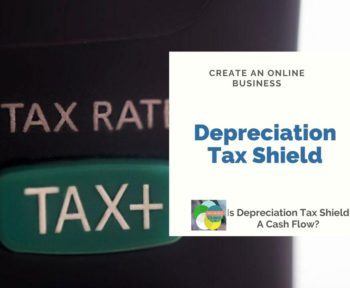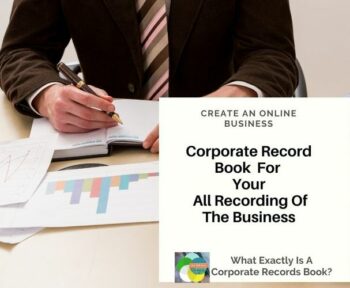Travel, interest, and insurance are just a few of the common small business tax deductions. The majority of small business expenses are eligible for tax deductions. Make use of as many qualifying deductions as possible to reduce your business’s tax liability. This article explains ten of the most often used tax deductions, as well as how they are included in the list.
The Most Important Takeaways
- The majority of regular expenses can be deducted by your small business. As long as they are commonplace and necessary for your line of work, they are acceptable.
- Due to the fact that personal expenses are not deductible, you must segregate them from company expenses for some expenses.
- You will not be able to prepay for these expenses. Ideally, it should be possible to use it throughout the year.
- There are several company expenses that cannot be deductible in a single calendar year. Through the use of depreciation, this can be spread out over a number of years.
What Is The Procedure For Claiming Business Tax Deductions?

Small businesses can claim tax deductions for any and all usual and necessary expenses incurred in the course of doing their operations for a profit. Different types of expenses, on the other hand, are deducted in a different way.
The following are examples of company expenses:
- Long-term assets incur capital expenditures. It is possible to include items such as a corporate car, equipment, startup expenditures, and renovations.
- Another option is the cost of goods sold, which includes the costs of manufacturing, selling, and transporting things.
- In addition to all of the usual expenses associated with running a business. Costs include leasing, paying employees and non-employees, office expenses (including electricity and supplies), and many other expenses.
In this post, we’ll take a look at some common expenses that you can write off to reduce your tax liability.
Please keep in mind that personal costs are not tax deductible. As a result, you must keep business costs distinct from personal expenses. Travelling between your house and your place of business, for example, is not deductible as a business cost. Due to the fact that this is deemed to be personal driving.
What Are The Top Ten Tax Breaks Available To Small Businesses?
1. Fees For Legal And Accounting Services, As Well As Tax Preparation
It is possible that you will opt to hire and pay an attorney to provide legal services. Alternatively, you may consider hiring someone to handle your bookkeeping and accounting. After that, pass the buck to the person in charge of preparing tax returns and providing tax advice. Business expenses such as these professional services are tax deductible.
You are not allowed to deduct legal or accounting fees for services rendered in connection with a business startup. Alternatively, you may be unable to do so in the case of acquiring business assets. You can, however, include them in the cost of your business or the asset’s value. If an accountant or attorney is preparing your tax return or other work that incorporates both business and personal services, you should consult with them first. However, you will not be able to deduct the personal portion of the price.
2. Expenses Associated With Advertising And Marketing
Advertisement, marketing, and promotion charges can all be deducted from your business expenses. This expense can assist you in attracting new customers and retaining existing clients. You may also be able to deduct expenses related to keeping your name in the public eye. As a result, advertising that encourages individuals to donate to charitable organizations.
What is one of the most common mistakes that business owners make when it comes to deducting expenses? That is the process of attempting to deduct the costs of driving around with an advertisement for your company on your car. The expense of the advertisement itself is tax deductible. However, the expense of driving the automobile around with the advertisement on it is not included.
3. For Computers, Tablets, And Cell Phones Electronic Devices.
Costs of relevant reference books, as well as computer hardware and software, can be deducted from your income. Taking these items into account for tax purposes is no longer necessary. There’s nothing to be concerned about if the cost is less than $2,500.
Only the portion of your computer or iPad that is used for business purposes is deductible. As of the 2018 tax year, computers, tablets, and related hardware and software are no longer considered listed property under the IRS definition. Although this is true, you should still be using these devices for business purposes more than 50% of the time.
4. The Use Of A Car Or Truck For Business Purposes.
You may be able to deduct expenses linked to the usage of your vehicle for business purposes. However, the IRS regular mileage rate should be applied in this case. Or, at the very least, it should do so by subtracting actual expenses.
If you want to see how the standard mileage rate changes from year to year, you must first look at the rate for the current tax year. Calculate the numbers both ways (standard vs actual mileage) to see which is the most beneficial for your company. Please keep in mind that there are some limitations to this. It is not possible to deduct mileage at the regular rate if you have depreciated the cost of your vehicle in previous years, for example,
You are not allowed to deduct expenses for commuting to and from your place of business or for personal driving. Then, before you begin calculating your deduction, you must first segregate your personal driving mileage from your business driving mileage.
5. Expenses For Insurance
If you have obtained commercial insurance for your company. For example, you might get business equipment insurance or group health insurance for yourself and your staff. As a result, you can deduct your premium costs. You can deduct the costs of other forms of insurance premiums as well. They are as follows:
- Workers’ compensation insurance is governed by state statutes and regulations.
- Insurance to pay business expenses in the event of the death or disability of a business owner.
- Officers and workers should have life insurance policies in place if the company is not a beneficiary.
- If your company is forced to close due to a fire or other disaster, business interruption insurance can help you recover.
6. Interest Charged on Commercial Debts
If you have purchased a facility for your business or taken out a business loan, you will almost certainly be incurring interest payments. Entrepreneurs who run small enterprises with annual average gross receipts of less than $25 million. Alternatively, it can be less for the previous three years. After then, there is no limit to the amount of interest expense deductions that can be claimed.
For larger firms, the interest rate deduction is limited to the total of the following amounts beginning in 2018:
- Interest income from a business.
- 30 percent of the company’s adjusted taxable income is subject to this tax.
- The interest rate for floor plan financing.
7. Leasing An Office, Equipment, Or A Business Vehicle Is A Common Practice.
Lease expenses for office space or equipment are tax deductible on a year-to-year basis. However, this is only for the expenses for that particular year. This means that you will be unable to prepay a lease for an additional year after signing it. The deduction for that second year is taken into account on your tax return for the current year.
You can also claim a tax deduction for the cost of a leased vehicle for your company. However, it is dependent on the sort of leasing agreement. If the lease is for less than 12 months and is an operating lease, the cost can be deducted from your income. However, it can be done once a year throughout the duration of the lease. There is another sort of lease, which is referred to as a capital lease. This is a longer-term rental agreement. That has terms that are similar to those of a purchase. Depreciation is required for capital leases.
Note:
The vast majority of company cars are classified as listed property. This means that you must distinguish between business and personal use. Furthermore, you can only deduct the portion of the lease cost that is directly tied to business use.
8. Expenses Incurred By Employees
When you have staff, you can deduct the majority of your expenses from your income. This is in reference to the workers in question. You can deduct employee-related expenses for the following:
- Wages and salaries are a type of compensation.
- Uniforms
- Instruments and equipment
Costs associated with employment taxes are deductible. Workers’ compensation, unemployment insurance, and the Federal Insurance Contribution Act (FICA) are examples of such taxes. And these are for the portion of Social Security and Medicare taxes that are paid by the employer.
The costs of employee benefits are deducted. On your business tax return, you will find these in two distinct places. Pension and profit-sharing programs will necessitate the creation of separate accounts. These are derived from the costs of other benefit programs that were incurred before they were included on your tax return.
9. Expenses For Business Travel And Meals
Expenses for business travel are tax deductible if they are incurred while traveling away from your primary place of business or employment. Travel that qualifies as deductible must also be primarily for business purposes. The following expenses are eligible for a tax deduction: Transportation, housing, taxis, and ride-sharing are examples of these services. Other expenses such as laundry services and tips may also be included in this calculation.

The deduction for entertainment expenses has been eliminated. Meal expenses, on the other hand, can be deducted. The majority of meals can only be subtracted up to 50% of the total. And you must be able to demonstrate these in order to conduct business. Meals consumed while traveling are still tax deductible at a rate of 50 percent.
Note:
The Internal Revenue Service has granted a temporary exception from the 50 percent limit. This restriction applies to meals and beverages purchased from restaurants. In addition, there are various enterprises that prepare and sell food and beverage products. Depending on the situation, this could be in the facility or for takeout. Restaurant meal charges, however, are fully deductible beginning on January 1, 2021, and ending on December 31, 2022, depending on your income.
10. Office Supplies And Expenses Are Included In This Category.
Office supplies and resources are required by any firm. They are used as staplers, paperclips, pens, and pencils, among other things. These expenses are also tax deductible for the purposes of business taxation. However, it is dependent on whether or not they are used throughout the year. Make sure to keep all of the supplies you’ve used separate. These are expenses incurred in the manufacture and shipment of items, and they are included in the cost of goods sold.
What are the additional expenses associated with running a business? They are deductible because they are internet hosting fees. In addition, office equipment such as desktop computers and office phones can be deducted from your taxes. However, it is critical to do so in the year in which you purchase them and at a cost of less than $2,500.
If you purchase office equipment that will be useful for more than a year. Which are like professional instruments, literature, or equipment. These will need to be depreciated over a number of years.
Final Thought
The majority of company deductions are subject to limitations, restrictions, and qualification requirements. Nonetheless, when it comes time to file your yearly taxes, it is preferable to seek the assistance of a competent tax professional. If your tax return is pretty straightforward, you may be able to save money by using company tax preparation software.
Every deduction you claim should be documented on paper or electronically. Make an effort to provide the date of the expense as well as the exact amount. Then, in case you have to explain the deduction to the IRS, you might state the purpose for why it was purchased for your company. This might be as simple as keeping receipts, bank statements, and credit card statements on hand for future reference. And by putting notes on them, you’ll be able to recall why the expenses were incurred in the first place.
FAQs
What is the difference between business tax deductions and business tax credits, and how do they work?
Using tax deductions and tax credits can both help you save money on your business taxes. However, they differ in terms of monetary value. And they operate in a different manner.
Tax credits have the direct effect of reducing taxes dollar for dollar. And anyone can make a claim for the full amount of money they are worth. However, they are unable to lower a company’s tax burden below zero in order to generate a loss. Tax credits are typically given to businesses as a kind of encouragement. This can be useful for a specific purpose. For example, the Work Opportunity Tax Credit, which rewards employers who hire disadvantaged workers. In addition, the small employer health insurance tax credit is intended to assist small businesses in defraying a portion of the costs of providing employee health insurance.
Tax deductions are utilized to minimize the amount of money earned by your firm. This can have an impact on your tax rate. If your firm has more deductions than income, you may be in the position of having a net loss for tax reasons.
How much money can you save by taking advantage of tax deductions for company expenses?
Business tax situations are unique to each individual company. Furthermore, the amount of tax deductions may differ from year to year. The majority of small business owners include their business taxes in their personal income tax return on Form 1040 or 1040-SR, which they file each year (for seniors). In certain instances, the net income from your firm is included in your personal income. It also incurs expenses in determining taxable income and the applicable tax rate for a given level of income.
One approach to get a broad estimate of how much money you can save through business deductions is to do some research. To do so, fill out IRS Form 1040-ES, Estimated Tax for Individuals, which estimates your overall tax liability. You may also be able to complete this estimate with the help of business tax preparation software.









